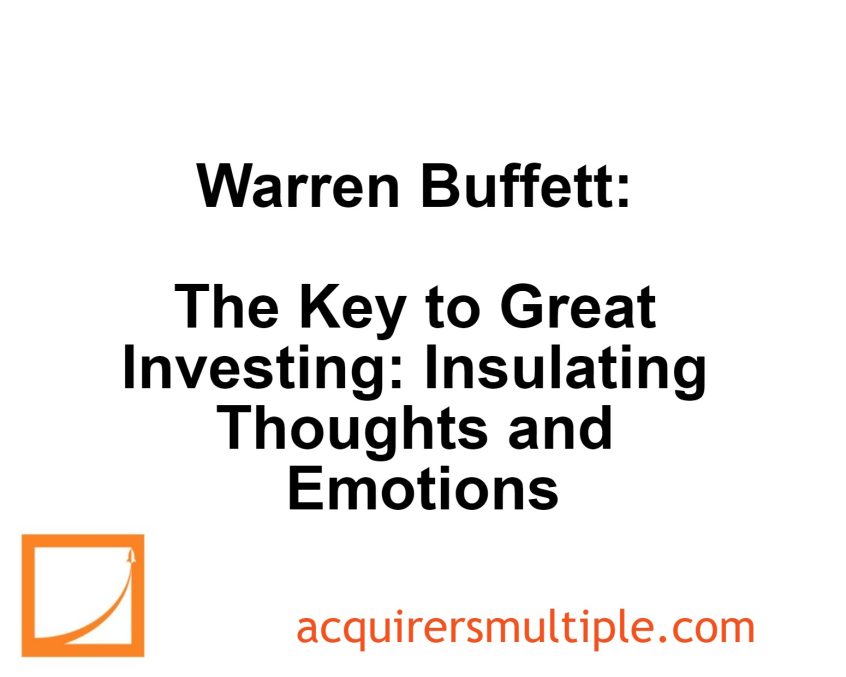In his 1987 Berkshire Hathaway Annual Letter, Warren Buffett emphasizes that investment success comes from sound business judgment and resisting emotional market influences.
He advocates following Ben Graham’s “Mr. Market” concept, focusing on a company’s operating results rather than short-term stock price movements. Buffett highlights that while the market may delay recognizing a business’s success, long-term intrinsic value will prevail.
He also explains that he sells holdings when overvalued or when a better opportunity arises, but not simply due to price appreciation or holding duration. Buffett remains content to hold investments indefinitely, as long as the company’s fundamentals and management remain strong.
Here’s an excerpt from the letter:
The value of market esoterica to the consumer of investment advice is a different story. In my opinion, investment success will not be produced by arcane formulae, computer programs or signals flashed by the price behavior of stocks and markets.
Rather, an investor will succeed by coupling good business judgment with an ability to insulate his thoughts and behavior from the supercontagious emotions that swirl about the marketplace. In my own efforts to stay insulated, I have found it highly useful to keep Ben’s Mr. Market concept firmly in mind.
Following Ben’s teachings, Charlie and I let our marketable equities tell us by their operating results—not by their daily, or even yearly, price quotations—whether our investments are successful.
The market may ignore business success for a while, but eventually will confirm it. As Ben said: “In the short run, the market is a voting machine but in the long run it is a weighing machine.”
The speed at which a business’s success is recognized, furthermore, is not that important as long as the company’s intrinsic value is increasing at a satisfactory rate. In fact, delayed recognition can be an advantage: It may give us the chance to buy more of a good thing at a bargain price.
Sometimes, of course, the market may judge a business to be more valuable than the underlying facts would indicate it is. In such a case, we will sell our holdings. Sometimes, also, we will sell a security that is fairly valued or even undervalued because we require funds for a still more undervalued investment or one we believe we understand better.
We need to emphasize, however, that we do not sell holdings just because they have appreciated or because we have held them for a long time. (Of Wall Street maxims the most foolish may be “You can’t go broke taking a profit.”)
We are quite content to hold any security indefinitely, so long as the prospective return on equity capital of the underlying business is satisfactory, management is competent and honest, and the market does not overvalue the business.
You can find the entire letter here:
1987 Berkshire Hathaway Annual Letter
For all the latest news and podcasts, join our free newsletter here.
Don’t forget to check out our FREE Large Cap 1000 – Stock Screener, here at The Acquirer’s Multiple:



